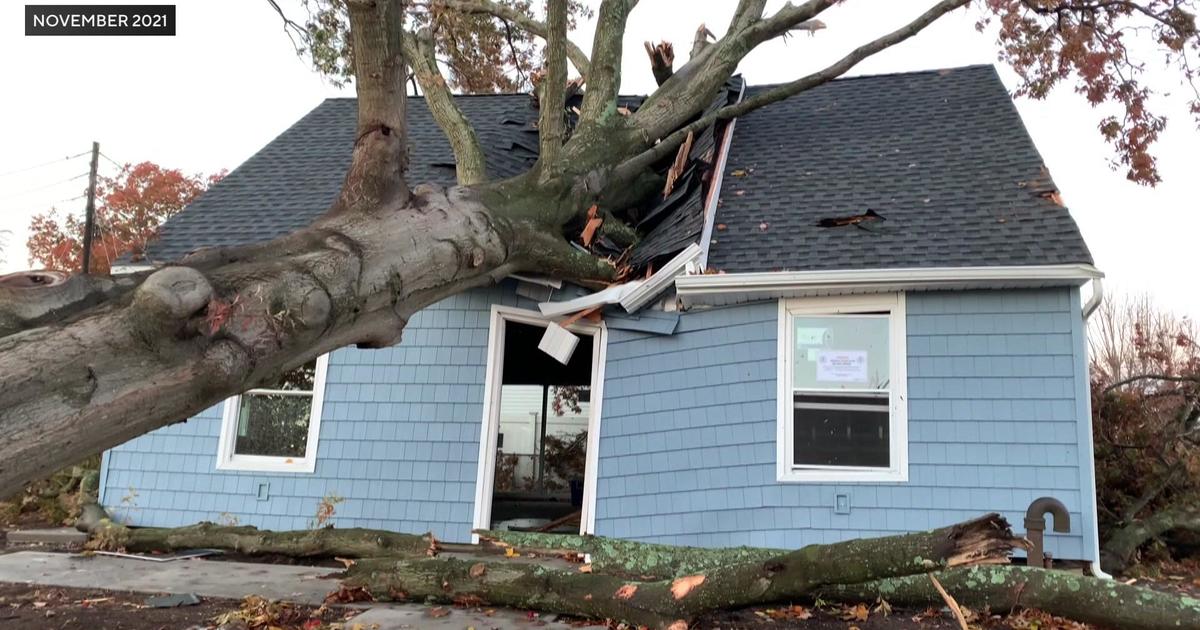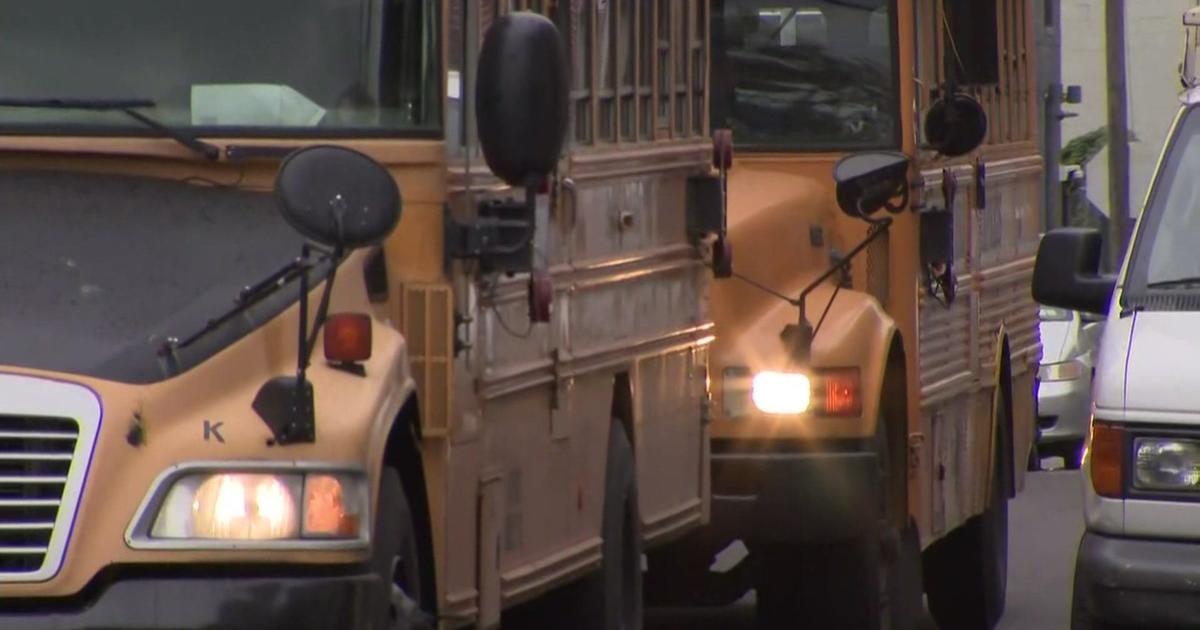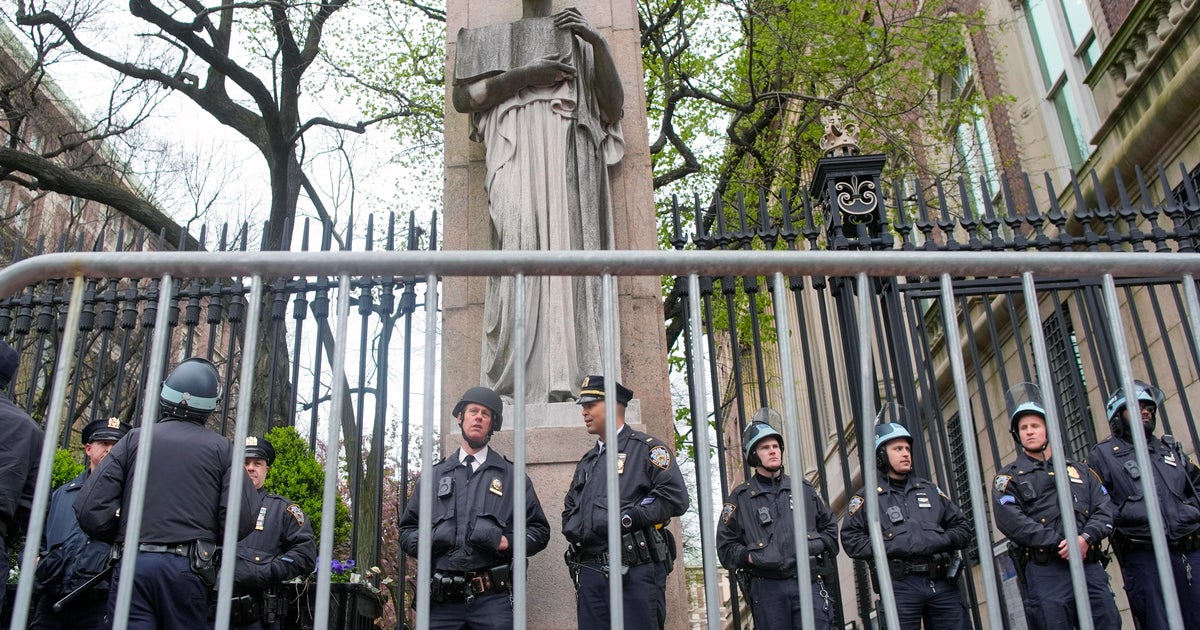Tri-State Area Libraries, Other Venues Host Events For Banned Books Week
NEW YORK (CBSNewYork) -- Readings, discussions and other activities were under way this week for Banned Books Week, an annual series of events intended to highlight what organizers call the freedom to read.
Banned Books Week was set to run through Saturday. The American Library Association began Banned Books Week began in 1982, after challenges to books skyrocketed.
Since then, more than 11,300 books have been challenged, organizers have said. The ALA says there were 307 challenges to books recorded just in 2013, and many more go unreported.
"People challenge books that they say are too sexual or too violent. They object to profanity and slang, and protest against offensive portrayals of racial or religious groups – or positive portrayals of homosexuals," the ALA said in 2010. "Their targets range from books that explore the latest problems to classic and beloved works of American literature."
Among the events in the area for Banned Books Week this year is a series of readings by Kevin Pyle and Scott Cunningham, authors of the docu-comic "Bad for You: Exposing the War on Fun." The authors noted that there was a time within the U.S. when comic books were burned.
The authors were also to talk about "how scary old fairy tales once were, as well as what keeps getting Harry Potter books banned (hint, it has something to do with the devil,)" organizers said.
Pyle and Cunningham appeared Monday at the Hamilton Grange Library in Harlem, and will also speak at 3 p.m. Saturday at the New York Public Library Main Branch at Fifth Avenue and 42nd Street.
Meanwhile, New York-based publishing firm Pantheon Books was posting original pieces of art and quotes from graphic novelists regarding book banning on its Tumblr page every day this week.
Events were also held or planned in Nyack and Monticello, and upstate in Plattsburgh, Canastota and Syracuse; as well as Newark, Cherry Hill and Succasunna in New Jersey; and Southport in Connecticut.
In 2013, the 10 most frequently banned or challenged books were:
• Captain Underpants, by Dav Pilkey, a children's novel series that began in 1997, depicting the adventures of two fourth-graders and their school principal whom they have hypnotized into the eponymous superhero clad in a cape and briefs. Reasons for bans: "offensive language; unsuited to age group; violence."
• The Bluest Eye, by Toni Morrison, a 1970 novel telling the story of a young African-American girl named Pecola in Lorain, Ohio, who has an inferiority complex because of her eye color and skin appearance. Reasons for bans: "offensive language; sexually explicit; unsuited to age group, violence."
• The Absolutely True Diary of a Part-Time Indian, by Sherman Alexie, a 2007 young-adult novel about a Native American teenager living on a reservation, and his struggles attending an all-white high school. Reasons for bans: "drugs/alcohol/smoking; offensive language; racism; sexually explicit; unsuited to age group."
• Fifty Shades of Grey, by E.L. James, a popular 2011 erotic romance novel known for its explicit scenes sexual practices such as of bondage/discipline and sadism/masochism. Reasons for bans: "nudity; offensive language; religious viewpoint; sexually explicit; unsuited to age group."
• The Hunger Games trilogy, by Suzanne Collins, a science fiction trilogy published between 2008 and 2011, recounting the adventures of a teenage heroine in a post-apocalyptic authoritarian society. Reasons for bans: "religious viewpoint; unsuited to age group."
•A Bad Boy Can Be Good for a Girl, by Tanya Lee Stone, a 2007 novel written in poetry format that follows the story of three high school girls who fall for one senior boy intent on seducing all the girls in school. Reasons for bans: "drugs/alcohol/smoking; nudity; offensive language; sexually explicit."
• Looking for Alaska, by John Green, a 2005 novel telling the story of a teenage boy who leaves home to attend a boarding school in Alabama and becomes involved in a relationship with an emotionally troubled girl. Reasons for bans: "drugs/alcohol/smoking; sexually explicit; unsuited to age group."
• The Perks of Being a Wallflower, by Stephen Chbosky, a 1999 coming-of-age novel about a shy and struggling teenager in a Pittsburgh suburb and his traumatic experiences in high school -- including issues of both gay and straight sexuality and sexual abuse. Reasons for bans: "drugs/alcohol/smoking; homosexuality; sexually explicit; unsuited to age group."
• Bless Me Ultima, by Rudolfo Anaya, a 1972 coming-of-age story about a boy growing up in New Mexico during World War II and his relationship with his curandera, or traditional healer. Reasons for bans: "occult/Satanism; offensive language; religious viewpoint; sexually explicit."
• The Bone comic series, by Jeff Smith, an epic comic book series produced between 1991 and 2004, and focusing on a group of cousins who have been run out of their hometown of Boneville and encounter an assortment of villains and hazards. Reasons for bans: "political viewpoint; racism; violence."
You May Also Be Interested In These Stories:



